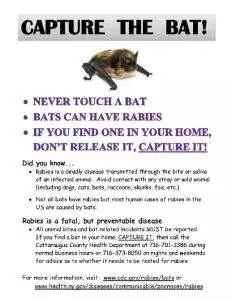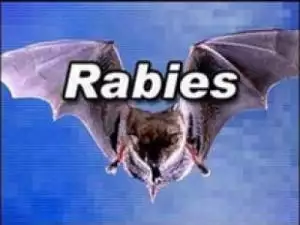What To Do If You Get A Bat Inside Your Home
(804) 457-2883

Most people that find a bat in the living quarters of their home do one of two things, both of which are wrong. They either kill the bat and dispose of it, or they capture the bat and release it back outside. Listed below are the reasons why neither decision is correct:
DON’T Do This If You Have A Bat In Your House
- Killing the bat and disposing of it – If you kill the bat and dispose of it, you have lost the ability to test the bat for rabies. Although the incidents of rabies in bats is typically low, there is no way to know for sure without the bat being tested. If there is a remote possibility that you or someone in your household has come in contact with the bat, most physicians will want you to undergo treatment for potential rabies exposure. Also, by indiscriminately killing of the bat, you may have inadvertently killed a Federally or State protected bat species.
- Capturing the bat and releasing it outside – By attempting to capture a bat there is always the possibility that you may be bitten. If you successfully capture the bat without being bitten and release it back outside you have just lost the ability to test the bat for rabies. Again, if there is a remote possibility that you or someone in your household has come in contact with the bat, most physicians will want you to undergo treatment for potential rabies exposure. Secondly, by releasing the bat back outside, it will probably just reenter the structure as it has been.
Now that we’ve talked about what you shouldn’t do, let’s discuss what you should do if you find a live bat in the living quarters of your home or business.
DO This If You Find A Bat Inside Your House

Generally, someone from they Health Department will contact you after a few days with the test results. If the bat tests positive for rabies, health department personnel can explain the proper treatment protocols. If the rabies testing is negative, no further action is usually needed; although, it’s always a good idea to follow-up with your physician.
After the bat has been picked up by your local Animal Control we recommend that you contact our office at (804) 457-2883 to schedule a bat inspection and assessment of your home. We’ve found that in most cases a bat found inside the living quarters of a home is indicative of a bat colony roosting somewhere in the structure.
What is considered a potential rabies exposure from bats in Virginia?

The animals most often diagnosed with rabies in Virginia are raccoons, skunks and foxes. Opossums, beavers and groundhogs are also considered to be at high risk for rabies.
We hope this information will educate you on what to do if you get a bat in your house. Our heart goes out to those home owners when they call telling us that there is a bat in my house. Visit our Bats Page for additional information on bats. Need Bat Removal In Richmond? You can also call us at (804) 457-2883.